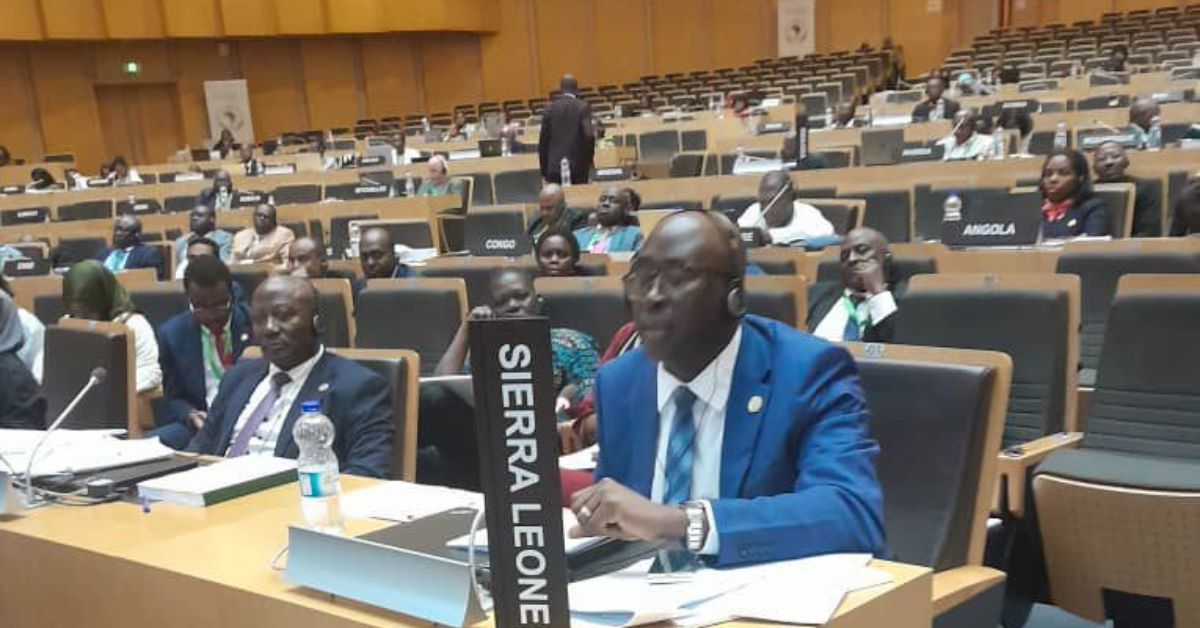Hon. Alpha Ibrahim Sesay, Sierra Leone’s Minister of Trade and Industry, delivered a decisive and influential contribution during the 15th Council of Ministers on Trade under the African Continental Free Trade Area (AfCFTA) agreement.
His firm stance on the exclusion of the Investor-State Dispute Settlement (ISDS) mechanism from the AfCFTA was pivotal in shaping the outcome of the high-level discussions.
The Council, a key body in the ongoing development of AfCFTA, engaged in extensive deliberations on the inclusion of ISDS, a contentious issue with significant implications for trade and investment across the continent. Minister Sesay played a central role in reaffirming that ISDS had no place in the AfCFTA framework, a position he argued was crucial to maintaining both the integrity of the agreement and the sovereignty of member states.
In his intervention, Hon. Sesay outlined several key points that underscored Sierra Leone’s position:
- No ISDS in AfCFTA Agreement: Minister Sesay made it clear that the ISDS mechanism was not incorporated into the AfCFTA agreement, reinforcing that the trade framework did not envisage such a dispute settlement mechanism.
- Exclusion from the AfCFTA Protocol on Investment: He further emphasized that the ISDS mechanism was explicitly absent from the AfCFTA Protocol on Investment, signaling a clear commitment to preserving the integrity of the agreement’s investment provisions.
- No ISDS in Any AfCFTA Annexes: The Minister pointed out that ISDS had been excluded from all annexes under the AfCFTA, leaving no room for the mechanism to be introduced in any related areas.
- Intentional Removal of ISDS: Hon. Sesay clarified that the removal of ISDS from the Protocol on Investment during the negotiations was a deliberate decision, not an oversight, aimed at preserving the vision of the AfCFTA’s investment framework.
- Endorsement by the Assembly of Heads of State: He highlighted that the exclusion of ISDS had been formally endorsed by the Assembly of Heads of State and Government, Africa’s highest political body, which had affirmed the consensus on the matter.
- Alignment with National Investment Act: The Minister also underscored that the AfCFTA’s current dispute resolution framework aligns with Sierra Leone’s National Investment Act, ensuring that national legal frameworks are respected while safeguarding the country’s sovereignty.
Minister Sesay’s position was crucial in shaping the consensus within the Council of Ministers, with the chairman ultimately ruling in favor of his proposals. His leadership reinforced Sierra Leone’s commitment to fair, transparent, and sovereign trade and investment policies under the AfCFTA, while ensuring that any future changes to the agreement would follow established legal processes.
The outcome of these discussions marks a significant moment in the AfCFTA’s evolution, as the continent continues to prioritize collective self-determination over external mechanisms that could undermine national legal frameworks.
Through Hon. Sesay’s clear vision and robust defense of Sierra Leone’s national interest, the country has reaffirmed its commitment to the goals of the AfCFTA, setting a strong example of leadership in the pursuit of equitable and sustainable trade practices across Africa.











